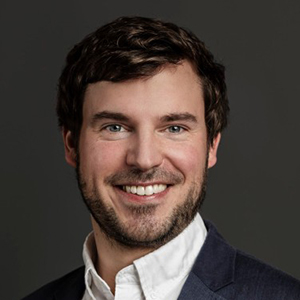Architected materials (or metamaterials) have become not only a popular solution for many applications that require materials with specific or extreme properties, but they also continue to present challenges for computational mechanics across scales. Besides the need for techniques that accurately predict a material’s properties based on its small-scale architecture (the forward problem), an even bigger challenge are methods that enable the optimization of the effective material performance through a careful design of the small-scale architecture (the inverse problem).

Dennis M. Kochmann,
ETH Zurich
We will discuss opportunities for and solutions provided by computational multiscale modeling for both problems. This includes the efficient simulation of architected materials by on-the-fly homogenization, the efficient prediction of fracture properties by coarse-graining, the design of novel spatially graded metamaterials for wave guidance, and the generative design of architected materials by methods of machine learning. For each example, we will demonstrate how computational techniques have enabled new directions in modeling and design, and how this field is still offering many challenges to be addressed.
Dennis M. Kochmann received his education at Ruhr-University Bochum in Germany and at the University of Wisconsin-Madison. After postdoc positions at Wisconsin and the California Institute of Technology, he joined the California Institute of Technology as assistant professor of aerospace in 2011 and in 2016 was promoted to professor of aerospace, a position he held through 2019. Since April 2017 he has been professor of mechanics and materials at ETH Zurich, since 2025 he has served as head of the Department of Mechanical and Process Engineering.
His research focuses on the link between microstructure and properties of natural and architected materials, which includes the development of theoretical, computational, and experimental methods to bridge across scales from nano to macro. In recent years, this also includes the use of machine learning to tackle problems in multiscale material modeling and computational mechanics. His research has been recognized by, among others, IUTAM’s Bureau Prize in Solid Mechanics, GAMM’s Richard von Mises Prize, ASME’s T.J.R. Hughes Young Investigator Award, an ERC Consolidator Grant, an NSF CAREER Award, and IACM’s John Argyris Award. He also enjoys teaching and has received Caltech’s Graduate Student Council’s Teaching Award as well as ETH’s Golden Owl.